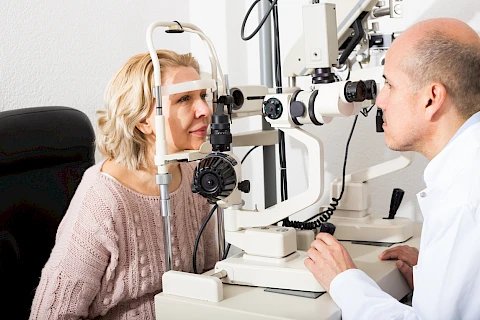
Healthy eyes are an integral part of a senior's well-being. Maintaining good vision becomes more critical as people age, especially as challenges arise. October is Blindness Awareness Month, a time to focus on eye health and preventing vision loss. We believe that education is key to preventing vision loss in our elderly loved ones, and we've got some information and eye health tips to share.
What You Need to Know About Age-Related Eye Conditions
Seniors are more likely than younger people to develop certain eye conditions. Here are some of the most common:
- Cataracts occur when the eye's lens becomes cloudy, leading to blurry vision, glare, and difficulty seeing at night. They develop gradually and are common among seniors.
- Glaucoma damages the optic nerve, often due to increased pressure in the eye. If not treated early, it can lead to vision loss. Symptoms might not be noticeable until significant damage occurs.
- Age-related Macular Degeneration (AMD) affects the macula, the part of the eye responsible for central vision. It can cause blurred or reduced vision, making it hard to read or recognize faces.
- Diabetic Retinopathy is a complication of diabetes that affects the blood vessels in the retina. Early symptoms might include floaters or blurred vision, and it can lead to blindness if untreated.
Caregivers should be aware of these conditions and watch for symptoms such as changes in vision, difficulty focusing, or any noticeable alterations in sight-related behaviour.
Tips for Maintaining Good Eye Health
Proper eye care can significantly reduce the risk of these conditions. Here are some steps that caregivers can encourage:
- Regular eye exams: Seniors should have comprehensive eye exams at least once every two years. These exams help with the early detection and treatment of any eye-related issues.
- Enhanced nutrition: A diet rich in green leafy vegetables, fish, and fruits can support eye health. Nutrients like omega-3 fatty acids, lutein, and vitamins C and E can help prevent or slow AMD and cataracts.
- Protective measures: Encourage the use of sunglasses to block harmful UV rays. Also, ensure the seniors' living spaces have adequate lighting to prevent eye strain.
- A healthy lifestyle: Smoking is linked to several eye diseases. Seniors should be encouraged to quit smoking and maintain a healthy weight to reduce the risk of diabetes-related eye conditions.
How Caregivers Can Support Senior Eye Health
Caregivers are essential in maintaining seniors' eye health. They can help by monitoring and assisting with changes in vision or new symptoms and ensuring that seniors attend regular eye check-ups. It's important to have open and encouraging conversations about eye health so that seniors feel comfortable discussing any vision changes they notice. Caregivers should also use available resources, such as local health centers and online information from reputable sources, to stay informed about eye conditions and treatments. This knowledge can be invaluable in providing the best possible care for seniors.
We're Here to Support Your Eye Health
Proactive eye care is essential for seniors to maintain their independence and quality of life. Understanding the risks and taking preventive measures can help our elderly loved ones see clearly for years. Does your senior loved one need assistance with meal preparation and transportation to eye appointments? For personalized and dedicated senior care services in Scarborough, Ellesmere, Wexford Heights, Birchmount Park, and Danforth, contact us at Senior Helpers Scarborough. Let us help you support your loved ones in maintaining their eye health during Blindness Awareness Month and beyond.